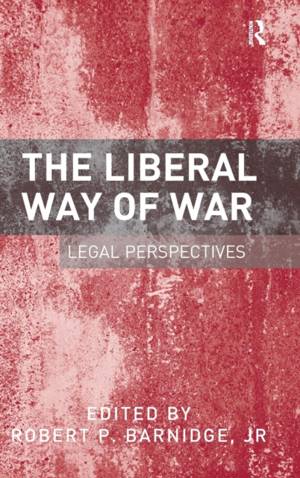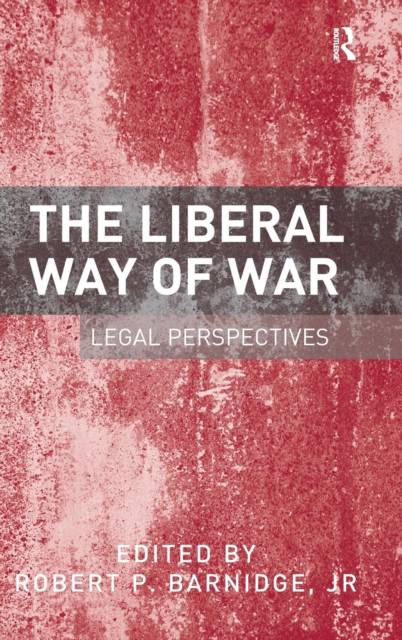
- Afhalen na 1 uur in een winkel met voorraad
- Gratis thuislevering in België vanaf € 30
- Ruim aanbod met 7 miljoen producten
- Afhalen na 1 uur in een winkel met voorraad
- Gratis thuislevering in België vanaf € 30
- Ruim aanbod met 7 miljoen producten
Zoeken
€ 67,95
+ 135 punten
Omschrijving
Examining some of the huge challenges that liberal States faced in the decade after 11 September 2001, the chapters in this book address three aspects of the impact of more than a decade of military action.This book begins by considering four different expressions of universalist moral aspirations, including the prohibition of torture, and discusses migration and 'responsibility to protect, ' as well as the United Nations Human Rights Committee's Concluding Observations about security and liberty in the last decade. International humanitarian law and the problems posed by the territorial character of war and the effects of new technologies and child soldiers are also analysed. Finally, Islamic law and its interface with international law is considered from a new perspective, and contributions in this final part offer a different way of thinking about an authentically Islamic modernisation that would be compatible with Western models of political order. With contributions from international lawyers from diverse backgrounds, this book fills an important gap in the literature on the themes of international human rights law, international humanitarian law and Islamic law.
Specificaties
Betrokkenen
- Auteur(s):
- Uitgeverij:
Inhoud
- Aantal bladzijden:
- 326
- Taal:
- Engels
Eigenschappen
- Productcode (EAN):
- 9781409467397
- Verschijningsdatum:
- 28/08/2013
- Uitvoering:
- Hardcover
- Formaat:
- Genaaid
- Afmetingen:
- 156 mm x 234 mm
- Gewicht:
- 635 g

Alleen bij Standaard Boekhandel
+ 135 punten op je klantenkaart van Standaard Boekhandel
Beoordelingen
We publiceren alleen reviews die voldoen aan de voorwaarden voor reviews. Bekijk onze voorwaarden voor reviews.











